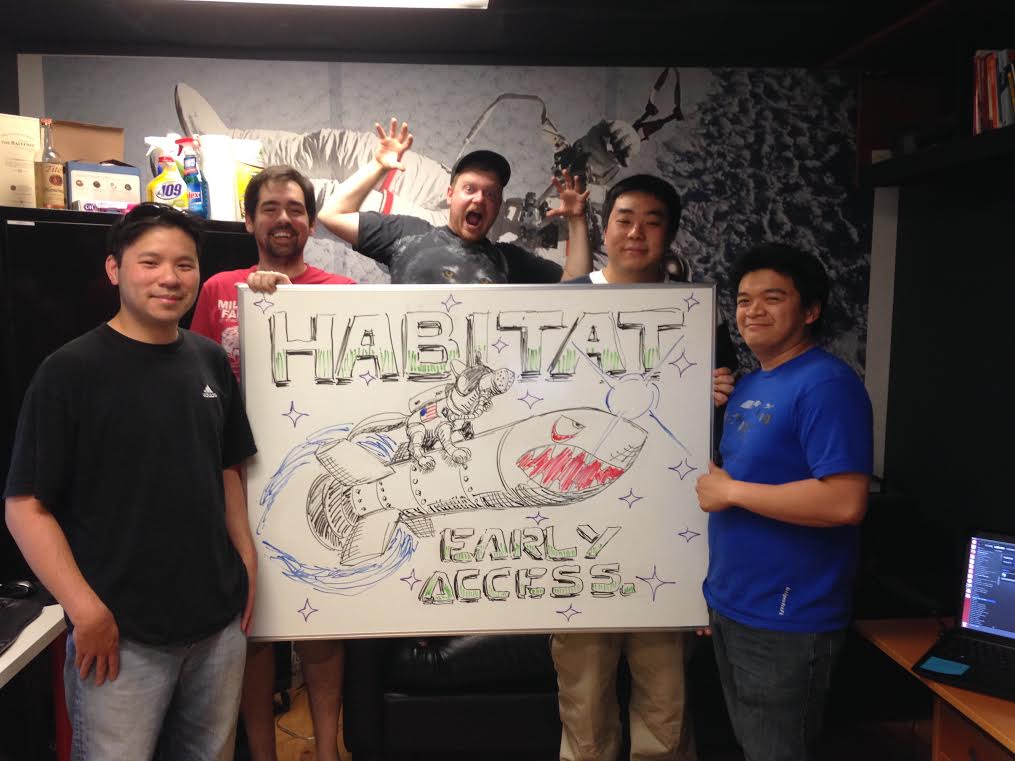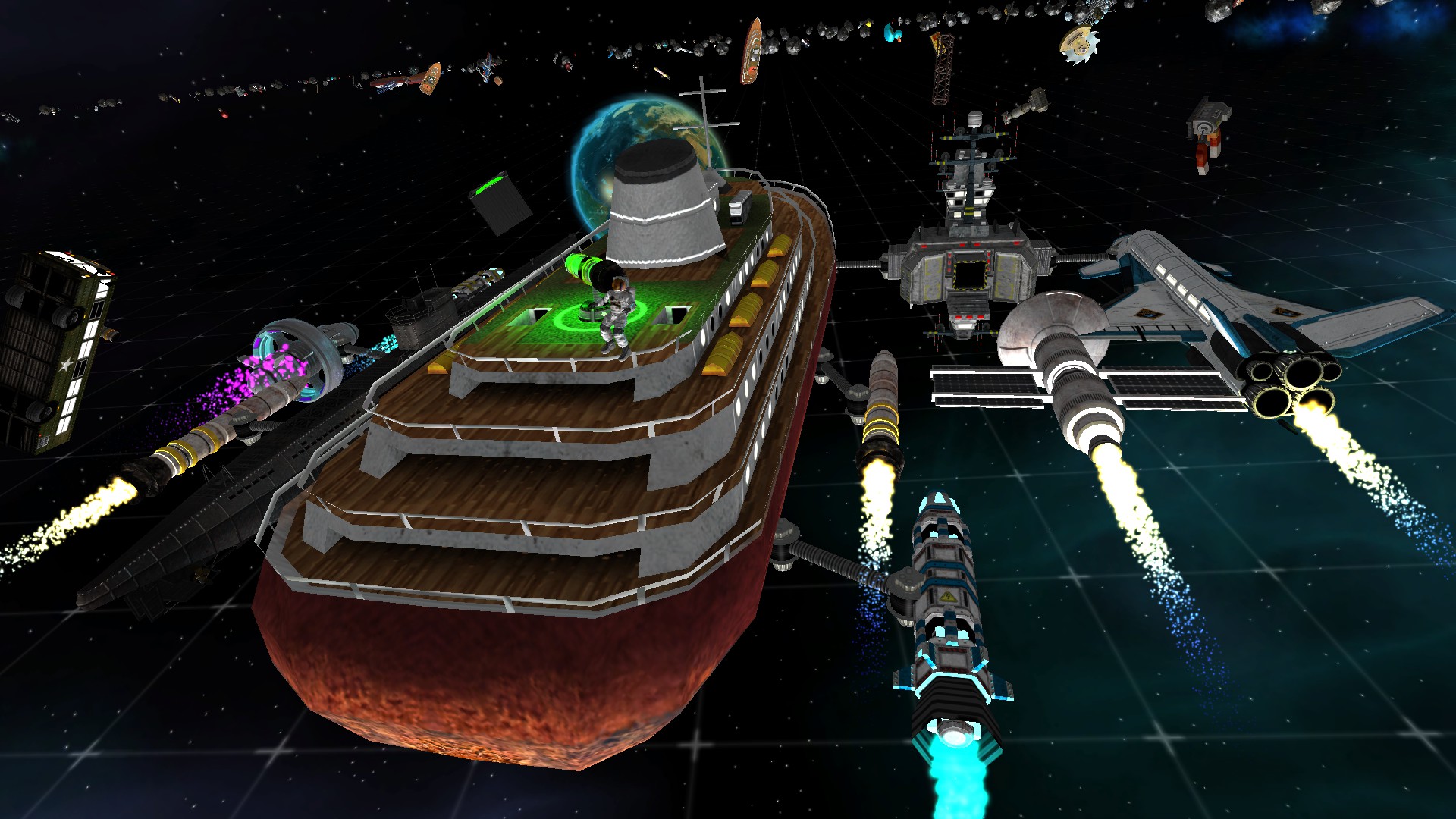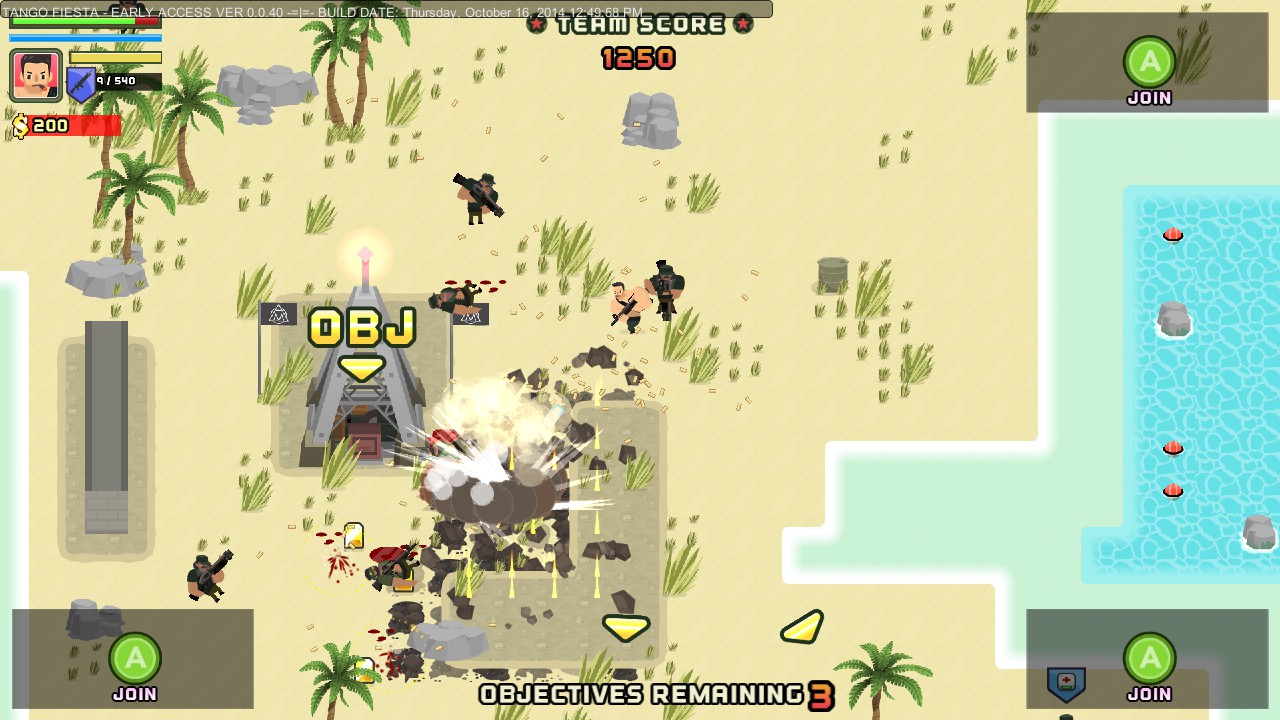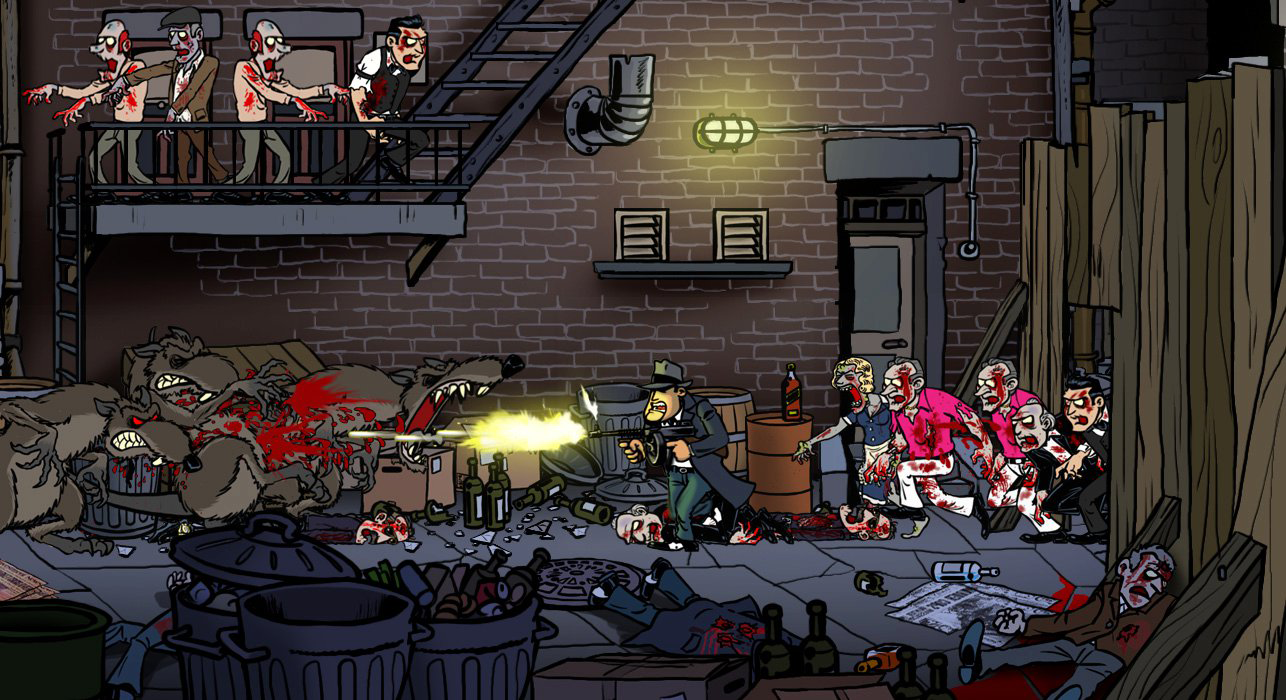Mobile gaming’s not what it used to be. Or perhaps — for many small studios, at least — it was never really such a great opportunity.
The mobile market is worth an estimated $30.3 billion, but that revenue’s not shared evenly across the platform. The sustained dominance of established big-hitters like Clash of Clans and Candy Crush — along with the problem of discovery in a flooded market — is making life tough for a lot of indie mobile-game developers. And with big players like Nintendo, Konami, and Square Enix now heading deeper into the mobile space, it’s interesting to note that many smaller teams are shifting the other way.
Recently, I spoke to three developers who’ve had their fill of mobile and have refocused on making PC games. They paint an interesting picture of a market that’s stifling innovation in a free-to-play gold rush. It’s a non-standard take on the potential of mobile, but it’s one that’s increasingly familiar to indie teams struggling to turn a profit.
The race to the bottom
Charles Cox is perhaps best known as the guy who won’t make another first-person shooter. A seasoned developer who was at Microsoft for many years — he planned and built the developer education program for Xbox One — he’s currently working on Habitat, a physics-based space-survival game in Early Access on Steam.
But a few years back, he made two mobile games — Node.Hack and Armored Drive — that were well received critically. I hopped on a Skype chat with Cox to ask why he’d shifted the focus from mobile to PC at his studio 4gency. He shared some interesting thoughts on the potential perils of the mobile scene.
“The interesting thing about the mobile space is that it is — certainly for the most successful titles and for even the smartest studios — incredibly data-driven,” said Cox.
“I think that maybe I did get a little disappointed because so much of [being in] mobile games is to fight that fight, whether or not you want to. For a lot of folks like me — who came from ‘buy a game, play a game, enjoy a game’ — you don’t even want to talk about stuff like user acquisition and monetization. They’re like dirty words.”
But if you don’t think that way, you’re dead before you begin, he reckons. “Not only do you have to talk about it, but you’re swimming with people and large companies that have already got this thing down to a science.”
For Cox, the unregulated nature of the mobile market means that game studios are racing to the bottom — both in terms of price and innovation.
“There’s a theory that in totally unregulated markets, where there are no artificial barriers to entry, services and competition will devolve down to just waging war on price only,” he said. “So it’s not about quality of service; it’s not about unique advantages that companies can hold. Eventually the economics boil down to, ‘Ah, what’s cheaper.’
“It leads to a kind of weird linearization and homogenization of services, and I worry that in unregulated markets for games, you’ll see the same thing happening, where people just drive down to zero on price and they copy each other and so on.”
Innovation and discovery
Part of his decision to head to PC was the robust community of gamers who are still willing to pay “decent prices for quality games” and are in interested in seeking out and supporting innovation.
“On PC, there’s already an attitude of, ‘Hey, let’s see what interesting cool stuff is out there,’” Cox said.
He says that building a community around innovative games is way more possible on PC. On mobile, innovation just isn’t rewarded the same way.
“You don’t want to have to create a new property [on mobile] and throw it out to the world and then fight with paid user acquisition to try to get up the charts,” said Cox.
But the big problem for mobile developers is discovery. With 500 new games hitting iOS every day during 2014, getting attention is becoming more and more tricky. And the mobile stores’ approach to discovery isn’t helping any, says Cox.
“I’ve seen nothing but incremental changes in the way that we do app discovery,” he said. “Largely you search the app store and there’s these giant tiles [the app store icons], and there’s a couple of editor picks, and nothing has changed in five years. If that stays the same and the number of apps increases … then the winners will take most of the money, and the losers will get nothing.”
Advice for fellow developers
Steam is at least trying to tackle discovery, but its daily releases are also growing, and the effectiveness of its curation system is not yet clear. Still, Cox says he’s encouraging fellow developers to skip mobile and head to PC.
“When I gave my talks on my lessons learned with mobile, people came up to me and said, ‘Do you think I should go on PC instead?’ I told them without hesitation — I said, ‘Absolutely.’ I think there’s a renaissance in progress, and I think there’s great stuff there.”
Cox says he may go back to mobile eventually, but only with a game that’s already proved a success and built its own community on PC — similar to what titles like FTL: Faster Than Light and XCOM: Enemy Unknown did previously. Beyond that, he’s leaving mobile alone, like many other people he meets.
“I’ve talked to folks who have both learned the hard way, as I have,” he said, “and who learned the easy way. They listened to other people who tried this and flamed out like I did.”
A changing market
I recently got in touch with Andrew Smith of Spilt Milk Studios to talk about his experience in mobile development, and I wasn’t anticipating that he’d given up on it completely. Previously responsible for mobile titles like the highly rated puzzler Hard Lines for iOS, Smith is now working on Tango Fiesta, an ’80s-themed twin-stick shooter for PC — again, in Early Access on Steam — which he’s also bringing to consoles.
Smith explained in an email how much the mobile market has changed since he first got involved.
“When I first started making mobile games, it was a relatively new market,” he said, “with low enough technical and administrative barriers that a tiny team of people could make something fun in a few weeks or months … and with luck make their money back.
“As time went on, a combination of the millions of people playing, the open nature of the various app stores, and the inevitable rise in production values meant that the equation changed.”
For the love of games
Smith also realized that, in trying to keep up with mobile trends, he’d no longer be making the types of games that he actually wanted to play.
“The kind of games I wanted to make were the kind of games I grew up playing and falling in love with,” he said. “And that just didn’t gel with what was popular on mobile at the time. I realized I needed support — money, marketing, production, contacts — if I was to carry on, but I’d also need to force myself into making the kind of games I don’t necessarily love.”
Smith decided to move to PC and Steam with Tango Fiesta, given the relatively low bar to entry and the interest of smaller publishers who “do great deals with indies.” He partnered with Mastertronic, and he’s super positive about how things are going. “Once we’ve shipped this summer, we’ll move onto our second project for PC while also getting Tango launched on consoles,” he said. “It’s all very exciting, and we get to make the kinds of games we love, too!”
Smith’s advice for developers is to pick the path of least resistance, which right now — for him, at least — is to focus on PC.
“Basically, it comes down to this – running a business and making games are two very hard things to do right … or do well,” he said. “Making enough money to carry on doing so is almost impossible. So at every turn, the sensible developer takes the route that sees them face the fewest, smallest, or most easily surmountable challenges. Pick your fights. And pick very few.”
After the gold rush
I met Steven Verbeek at the Casual Connect gaming conference in Amsterdam back in February. Surrounded by mobile games and advertising firms, Verbeek’s team — dressed as 1920s gangsters — were showing off Guns, Gore, & Cannoli, a side-scrolling zombie shooter that picked up the Best PC Game award at the show.
Verbeek told me that his company, Crazy Monkey Studios, shifted quite recently from mobile to PC development. It wasn’t until I caught up with him by email this week, though, that I realized how big a move that had been and how much trouble mobile development had caused for the small team from Belgium.
“My company started in 2011 with our main focus on mobile development,” said Verbeek, who was “thrilled by the app gold rush on iOS and Android devices back then.”
Despite significant investments of between $56,000 and $112,000 in their mobile games, the team struggled to make a decent return.
“Unfortunately, all our projects ended up being unprofitable due to lack of visibility and big competition on the stores,” said Verbeek. “I can still remember selling 1,000 copies a day during the first week, and from one day to another it switched to five units a day because we went out of the spotlight.”
Switching direction
The studio’s mobile games ended up in what Verbeek describes as the “never-ending app universe, where 99 percent of all apps are and nobody cares about.”
Verbeek said the team couldn’t stomach making free-to-play mobile titles, which none of them enjoy playing. “It’s suddenly not about building a great gaming experience for your audience but implementing features to get as much money as possible out of their pockets,” he said.
Instead, they decided to focus on PC and console development, and Guns, Gore, & Cannoli was born. Verbeek told me that his team “absolutely” prefers building for PC and console.
“We just get to work with a lot more CPU and memory to build larger environments and special effects,” he said. “This is what we all wanted to do.”
Verbeek has no plans to go back to mobile development right now. “We will definitely stick to console and PC development,” he said, “although we don’t know what the future might bring. Several new concepts are on the drawing board; for now, we have nothing scheduled for the mobile space.”
He told me of several other indie studios who’ve made the same move. “I hear them all complaining about the difficulties on mobile,” he said.
It’s an all too familiar story.
VentureBeat's mission is to be a digital town square for technical decision-makers to gain knowledge about transformative enterprise technology and transact. Learn More





